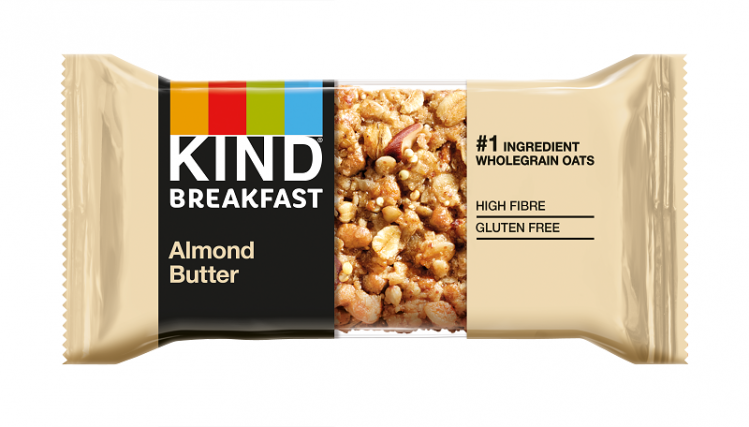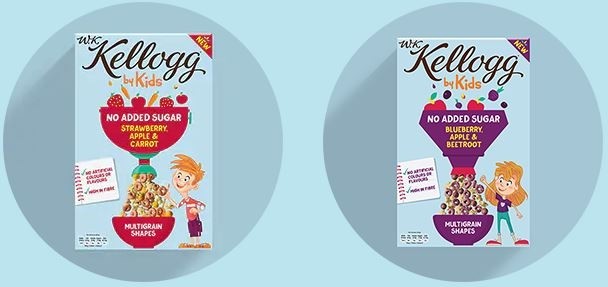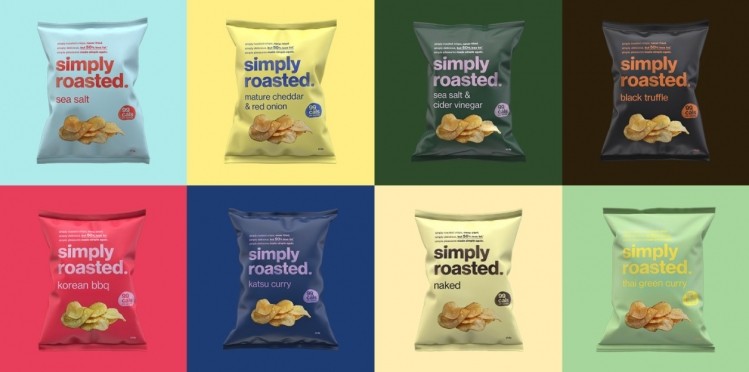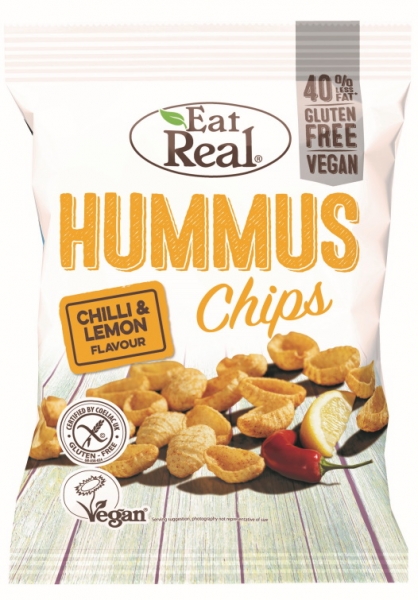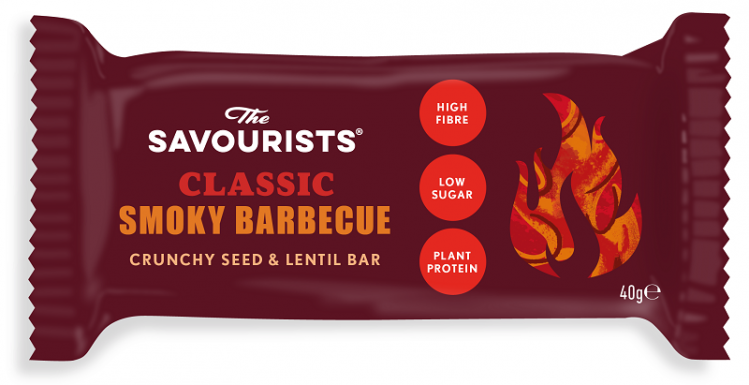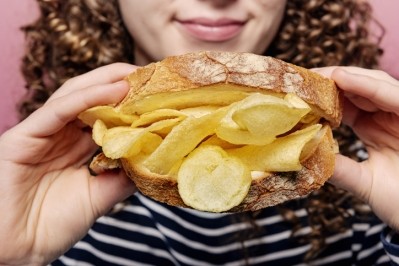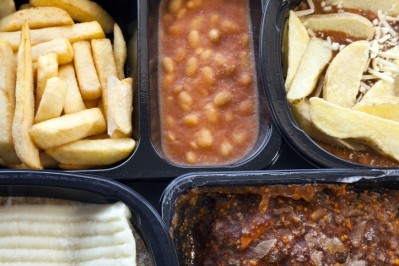How UK brands are reformulating to avoid the HFSS ad ban

But the proposals are vague, and the government is yet to fully explain how it will define which foods, ingredients and formats will come under the scope of the legislation.
Although details have yet to be sketched out, it is believed the Government will define which foods to restrict based on its current nutrient profiling model developed by the Food Standards Agency in 2004-2005. This approach takes into consideration the balance of the positive (i.e. fibre, protein, fruit/vegetables, etc) vs negative (fat, salt, sugar) components of food and drink and is also the model used by supermarket Tesco as it aims to increase the proportion of sales from healthier products to 65% by 2025.
Market researcher IRI has identified five options for food and drink advertisers to take ahead of the restrictions coming into force next year:
- Accept the ban, with manufacturers and retailers absorbing a loss of £192 million.
- Move advertising spend to post-watershed, with a predicted loss of £112 million on sales.
- Move advertising spend to other channels, with a predicted loss of £96 million in sales.
- Advertise an alternative low fat, sugar, salt (LFSS) brand - 78% of manufacturers have a non-HFSS product. But, by shifting advertising to products with lower penetration or new product development, we would expect to see lower returns and a lower halo impact across brands. IRI predicts an impact on sales of -£80–100 million.
- Re-formulate HFSS products to be compliant. This could be the best option for manufacturers, with a lower impact on sales of -£30-75 million, but also the most difficult. While this would allow for a continuation of advertising of core products with the highest penetration, it is incredibly complex and could face consumer pushback, while some products cannot be reformulated.
“Advertising can be effective at driving sales for brands,” said Carl Carter, Marketing Strategy & Effectiveness Director at IRI. “Well executed and optimised advertising spend nudges consumers towards one brand over a competitor in the category, rather than into the category itself. So, if you are in the mood for something sweet and in the confectionery aisle, there’s plenty of evidence that having recently been exposed to advertising will increase your chances of adding that brand into your consideration set rather than drawing you into a completely new category you’ve not shopped before.
“While it is a challenging time for many FMCG brands and retailers, now is the time to investigate new opportunities and test new media strategies ahead of the regulations coming into effect."
Here’s a selection of products which have been reformulated or designed to be HFSS-compliant.
KIND’s new Breakfast Almond Butter
KIND is currently lobbying against the coming HFSS clampdown, which it says unfairly discriminates against its high nut content. As it stands, these products will be impacted by the HFSS restrictions. KIND’s breakfast range is unaffected by the proposals, however.
It recently unveiled a new Breakfast Almond Butter which it says will be HFSS compliant by switching nuts with oats, millet, buckwheat, amaranth and quinoa. It also uses almond butter as it’s high in fibre.
Available in single (RRP. £1, 40g) and multipack formats (RRP. £3, 4 x 30g), it will launch across Tesco, Waitrose and Sainsbury’s stores and independents across the UK.
Pitched as ‘breakfast without the bowl’, the handy pocket-sized product and transparent packaging has been designed to appeal to the consumer looking for a healthy, on-the-go breakfast option. It also pairs perfectly with yogurt and fruit for those looking to use the bar as an ingredient.
John McManus, UK Marketing Director said: “We know there’s huge popularity for nut butters and we’re really excited to be able to incorporate almond butter into our latest launch.
"Following consumer research, we’re changing the format slightly, with the revised range offering one larger 40g bar in each single serve pack as opposed to two smaller bars. We’re really excited to see the new variant roll out nationwide and it’s fantastic to have such strong support from our retail partners to enable us to do this.”
Image supplied by KIND
Kellogg's vows to cut sugar and salt from cereals
Kellogg’s UK will cut the sugar content by 10% across its kids’ cereal range making them all non-HFSS by the end of 2022, and cut salt in its cereals by at least 20% by the end of 2022.
It will also reduce the salt content in Special K to make it non-HFSS by 2022. Thanks to a reduction in salt on Special K it will now join Coco Pops, Corn Flakes and Rice Krispies which are already non-HFSS, it said.
The company added it will help also address the UK’s chronic lack of fibre by ensuring all of its breakfast foods are either a source or high in fibre by the end of 2023. Kellogg’s UK VP, Chris Silcock, said: “People are rightly demanding more from companies like ours and everyone expects good food to do a world of good too. We agree. That’s why we are launching a new effort to improve our foods."
Image supplied by Kellogg’s UK
'Better for you crisps'
Simply Roasted has unveiled a new range of 'better for you crisps', created in Norfolk using a patented roasting process that cost over £20 million to develop over a 10-year period.
The crisp is roasted using a whole slice of potato - offering all the taste, crunch and satisfaction of a traditional fried crisp, according to the manufacturer.
The manufacturing process behind Simply Roasted is a patented multi-step preparation and cooking system that is 'completely new to the market'.
In comparison with traditional crisp making, which involves frying in oil at high temperatures, Simply Roasted uses fresh, whole potatoes that then go through three stages of crisp cooking processes. It said the crisps provide 50% less fat, significantly less salt and only 99 calories (per serving).
The brand is launching with a collection of on trend flavours including: Sea Salt, Mature Cheddar & Red Onion, Sea Salt & Cider Vinegar and Black Truffle, with an exciting extended range to follow - sure to pique any flavour hunters’ interest - to include Korean BBQ, Katsu Curry and Thai Green Curry.
There will also be a ‘Naked’ flavour available, championing the fact that Simply Roasted uses 100% premium UK potatoes.
Ruth Fittock, Marketing Director of Mindful Snacker said: “Our aim is to provide delicious better-for-you snacks that bring the pleasure back to snacking. We focus on all natural ingredients that you recognise, minimal processing, no additives, we’re conscious of salt content, but ultimately we are driven by taste - everything we do is delicious, we’re obsessed with flavour and quality. Whilst taste will always be the number one factor, we have seen health increasingly become a driver of indulgent comfort food sales during the pandemic, and we’ve responded to that. The pandemic has made little joys of the everyday, such as snacking, more important to us than ever before, so what if there was a better way to enjoy what you love without the added worry of your health; namely fat, salt and calories? We want to be the future of snacking.”
Image supplied by Simply Roasted
Eat Real cuts salt after outcry
Eat Real has lowered the salt content of its Chilli & Lemon Hummus Chips after health campaigners complained the product contained 3.6g salt/100g.
Eat Real is rooted in a mission to make snacks using real, natural ingredients. We remain totally focused in ensuring our snacks are as healthy as possible, including keeping salt levels down. And we’ve made real progress. We’ve already lowered the salt content of our Chilli & Lemon Hummus Chips, as referenced in the article, by nearly 41% which will be reflected in new packaging soon.
It said: “We’re introducing four new products in August that will demonstrate our ultimate ambition to be a fully non-HFSS brand. We’re determined to keep leading the health conversation, and to continue delivering on our promise of real taste, real nutrition and real ingredients.”
Image supplied by Eat Real
Lotus seeds as snacking alternative
Karma Bites has developed a line of Popped Lotus Seed snacks which are both gluten free and vegan.
The range is also low in calories – especially when compared to popcorn and dried fruit. They are low in cholesterol, fat and sodium, while being high in magnesium.
Karma Bites’ products are available in a range of flavours, including Peri-Peri; Wasabi; Coconut & Vanilla; Himalayan Pink Salt and Caramel. They are sold in Whole Foods Market, Planet Organic, Ocado, and in independents across the UK.
Karma Bites founder Ashwin Ahuja said the use of coconut oil in its range of popped lotus seeds, purported to boost heart health and fat loss, and horseradish which is considered to be a natural antibiotic.
Image supplied by Karma Bites
Using ancient grains for nutritional punch
Insane Grain’s puffed snacks (94 calories per pack) are made with sorghum, an ancient grain that the brand claims is a ‘nutritional powerhouse’ thanks to its high amounts of vitamins and minerals and gut-health benefits. Co-founder Rushina Shah quit her job at Procter and Gamble to launch the brand. She said: “I had known about this super grain since I was a child (as it is often used in Indian cooking), but didn’t realise how nutritionally powerful it was. I also saw a gap in the market for a healthy snack at a more affordable price point and couldn’t understand why healthy snacks were all priced above £1 and therefore not accessible to all households at different income levels.”
Image supplied by Insane Grain
Using savoury ingredients to improve nutritional content in snacks
The Savourists calls itself a non HFSS brand driving innovation in the snack bar category. And makes snacks by using with savoury ingredients such as roasted lentils in combination with ancient grains including quinoa, puffed amaranth and sunflower seeds.
It recently launched new Classic Smoky Barbecue and Spicy Chilli Sriracha bars to “open the door to a more mainstream snacking audience”. The start-up said the products boast “low sugar, high fibre, gluten free ingredients whilst being packed with plant-based protein makes them a genuinely healthy snacking option.”
Image supplied by The Savourists
